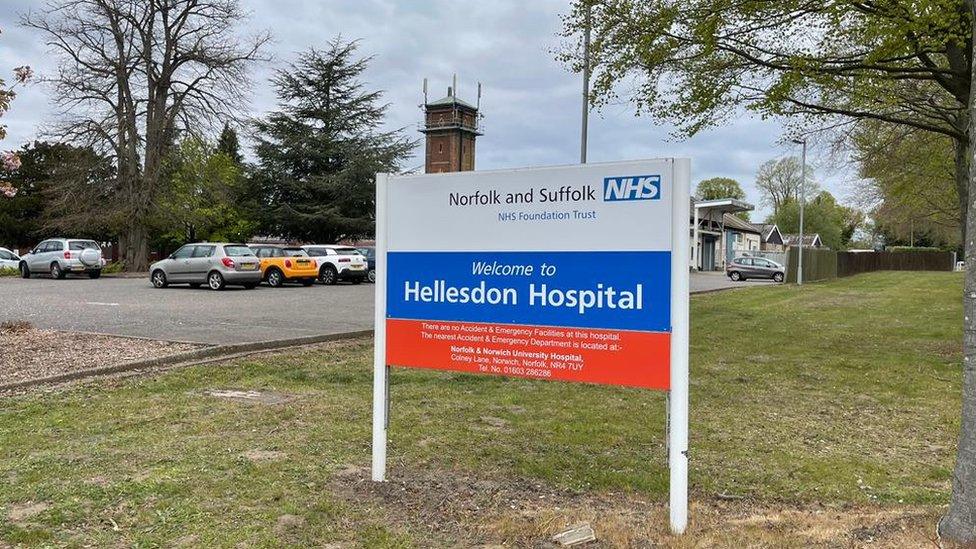Norfolk and Suffolk mental health campaigners want inquiry over data
- Published
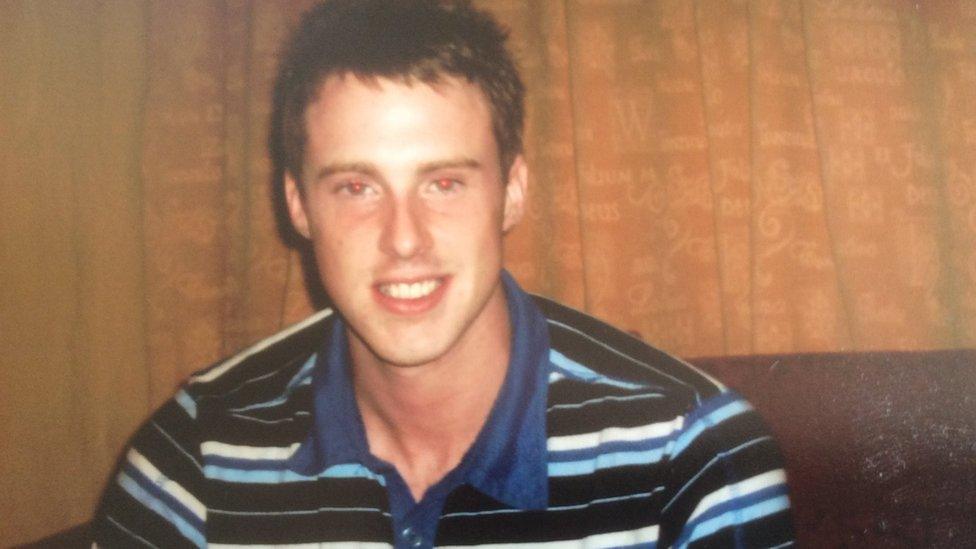
Caroline Aldridge's son Tim Shanahan died in Norwich in 2014 at the age of 30
Campaigners are calling for a public inquiry into the way mental health trusts keep track of patient deaths.
It follows a report that highlighted chaotic data collection at the Norfolk & Suffolk NHS Foundation Trust (NSFT).
Grant Thornton's independent study said this was a national problem and bereaved relatives had written to the Health Secretary requesting action.
The Department of Health and Social Care (DHSC) said there were no current plans for an inquiry.
Auditors Grant Thornton investigated the way NSFT monitored and recorded deaths, external of inpatients and those in the community.
The report concluded that the mental health trust could not "provide assurance" of its figures and said there was a gap between data entered on to internal systems and what was presented to the public in board reports.
Of 11,379 deaths of people in contact with the trust over the past five years, the number that could have been deemed avoidable was uncertain, the report said.
The DHSC said it had commissioned an independent rapid review into how data and evidence used in mental health inpatient settings could be improved and to identify patient safety risks.
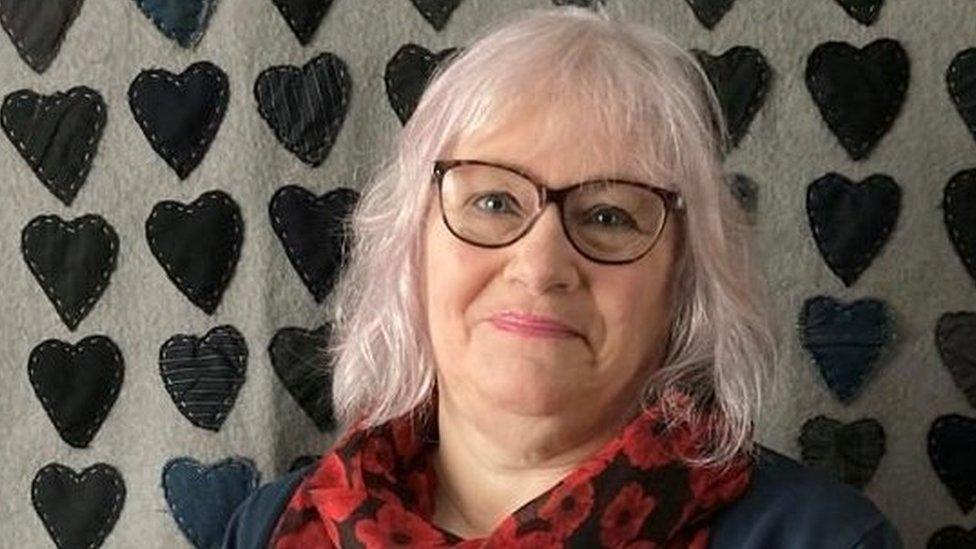
Caroline Aldridge said any public inquiry should have full powers to compel witnesses
Caroline Aldridge, whose son Tim died in 2014, wrote a book called He Died Waiting that detailed what she said were his struggles to get the right support from NSFT.
She wrote to the Secretary of State for Health and Social Care, Steve Barclay, in a letter also signed by campaigners Anne Humphreys and Labour member of Norfolk County Council, Emma Corlett.
In the letter, which was also addressed to the Minister for Mental Health, Maria Caulfield, they described the Grant Thornton report as "disgraceful".
They said: "Whether by acts of commission or omission, the corruption of data within the NHS is totally unacceptable and it must be exposed and addressed.
"We believe this justifies a statutory independent public inquiry.
"If a trust cannot even count, let alone identify, who has died and why, they are not in a position to learn and improve."
'Work under way'
Grant Thornton highlighted how "the quality and consistency of mental health data is a recognised national challenge".
"National guidelines over mortality reporting for mental health trusts are not as clear and defined as those in place for acute trusts," the auditor said.
Stuart Richardson, chief executive at NSFT, said: "We are very sorry that the trust has not previously had the systems and processes in place around recording mortality data that people rightly expect.
"The Grant Thornton report makes recommendations which clearly set out what we need to do - and this work is already under way, with external support and oversight from our NHS partners.
"We will regularly publish consistent information with mortality figures that will be independently audited, comparable over time, and discussed in public at our board meetings."
A government spokesperson said: "Last week, the secretary of state announced that a new Health Services Safety Investigations Body will be formally established in October and will launch a national investigation into mental health inpatient care settings to improve the quality of care where it is failing.
"We also commissioned an independent rapid review into how we can improve the way data and evidence is used in mental health inpatient settings to identify risks to patient safety and drive improvement in mental inpatient pathways.
"We will be responding to the review's recommendations in due course."

Find BBC News: East of England on Facebook, external, Instagram, external and Twitter, external. If you have a story suggestion email eastofenglandnews@bbc.co.uk
Related topics
- Published28 June 2023
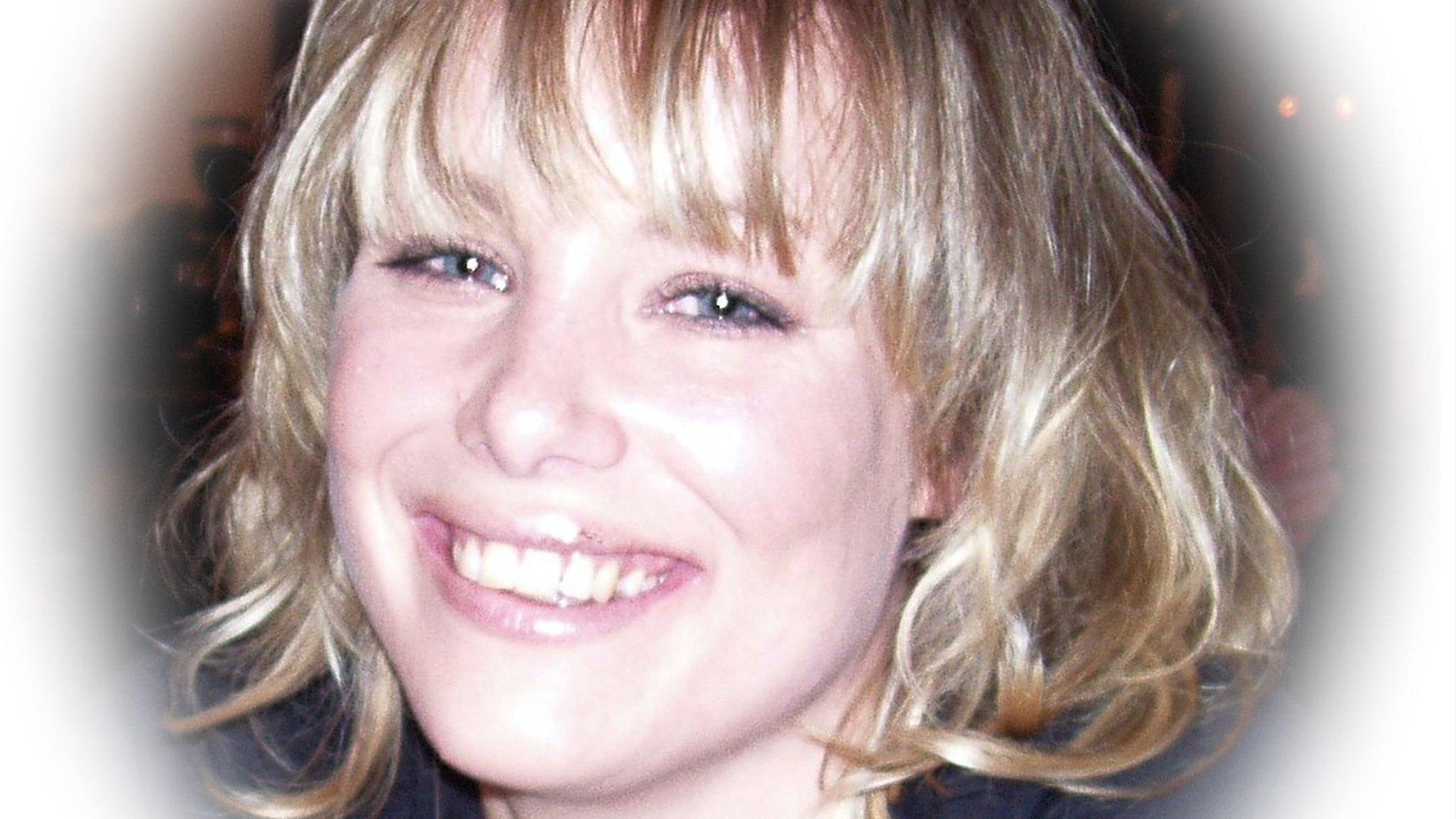
- Published2 February 2023
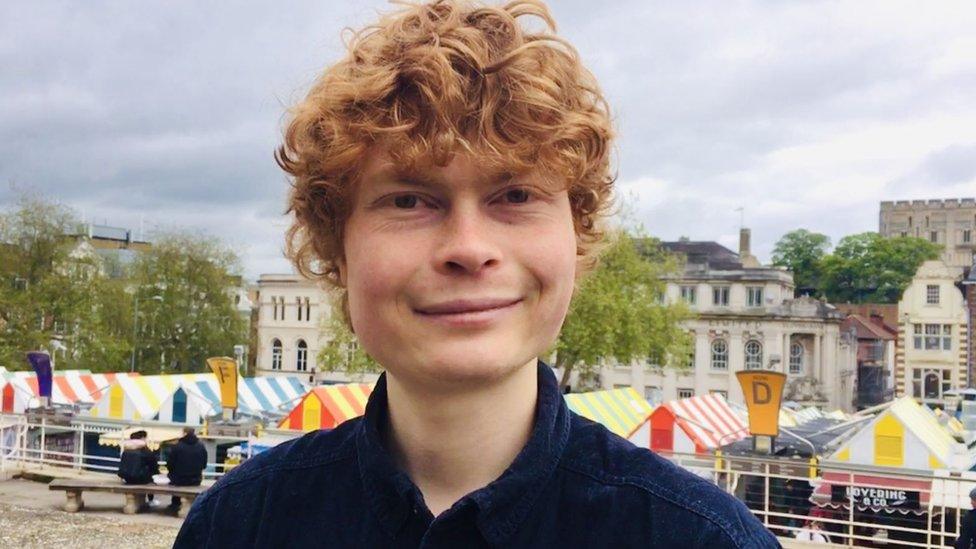
- Published27 January 2023
